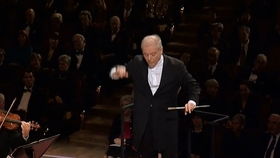Introduction: Fishing is a popular outdoor activity that offers relaxation, tranquility, and the thrill of catching fish. However, to enjoy the full experience, it is essential to master the art of moderate fishing techniques. This article will provide you with valuable tips and tricks to help you become a skilled angler while maintaining a balance between fishing and conservation.
Choose the Right Equipment: Selecting the appropriate fishing equipment is crucial for successful fishing. Here are some essential items to consider:
a. Rod and Reel: Choose a rod and reel that match the type of fish you plan to catch. A lightweight rod and reel combination is ideal for beginners.
b. Line: Use a monofilament line with the appropriate thickness for the fish you are targeting. Thicker lines are better for larger fish, while thinner lines are suitable for smaller species.
c. Lures and Baits: Familiarize yourself with various lures and baits suitable for your target fish. Experiment with different options to see which one works best in your fishing environment.
Learn to Cast: A well-executed cast is essential for successful fishing. Here are some tips to improve your casting technique:
a. Hold the rod with a comfortable grip, keeping your fingers close to the reel handle.
b. Position your feet shoulder-width apart, facing the target.
c. Begin with a backcast, allowing the line to unwind smoothly.
d. Pause at the end of the backcast and then bring the rod forward with a forward cast, allowing the line to follow.
e. Practice casting in different directions to become proficient.
Understand Fish Behavior: Understanding the behavior of the fish you are targeting is crucial for successful fishing. Here are some tips to help you predict fish movements:
a. Study the habits of the fish species in your fishing area. This includes their preferred feeding times, habitats, and migration patterns.
b. Observe the water conditions, such as temperature, clarity, and flow, as these factors can influence fish behavior.
c. Use local knowledge and resources, such as fishing guides or local anglers, to gain insights into the best fishing spots and techniques.

Patience is Key: Fishing requires patience and perseverance. Here are some tips to help you maintain your focus and stay calm:
a. Set realistic expectations and be prepared for long periods without a bite.
b. Take breaks to relax and enjoy the surroundings. This will help you maintain a positive mindset and reduce stress.
c. Practice mindfulness techniques, such as deep breathing or meditation, to stay centered and focused.
Practice Conservation: Fishing is a sustainable activity that relies on healthy fish populations. Here are some tips to ensure responsible fishing:
a. Release fish that are too small or not of legal size to ensure their survival and future population growth.
b. Use barbless hooks, which are easier to remove and reduce injury to the fish.
c. Practice catch-and-release techniques, particularly for non-game fish or species that are not legal to keep.
Conclusion: Mastering the art of moderate fishing techniques requires practice, patience, and a deep understanding of fish behavior and conservation. By following these tips and tricks, beginners can improve their fishing skills while enjoying the beauty and tranquility of the great outdoors. Remember, responsible fishing ensures that future generations can also experience the joys of this cherished pastime.












